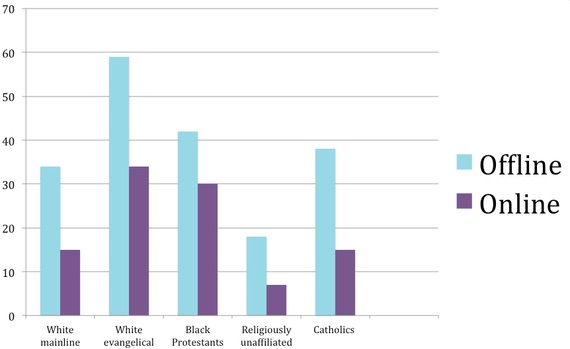Some fascinating (and amusing) statistics gathered from a few recent reports on marriage. You can read more about each of these findings at The Divorce-Proof Marriage, For A Lasting Marriage, Marry Someone Your Own Age, and Masters of Love.
Buy a cheap ring: According to a new study, spending between $2,000 and $4,000 on an engagement ring is significantly associated with an increase in the risk of divorce.
Date for three years: Couples who dated for at least three years before their engagement were 39 percent less likely to get divorced than couples who dated less than a year before getting engaged.
Get rich: Couples who make more than $125,000 a year (combined) cut their divorce risk in half.
Go to church: Couples who attend church together also cut their divorce risk in half.
Have a big wedding: The more people attend your wedding, the more likely your marriage will succeed. But don’t spend a lot on the masses because…
Have a cheap wedding: The more you spend on your wedding the more likely you are to get divorced.
Go on honeymoon: Honeymoons decrease the risk of divorce by 41%.
Don’t marry for looks or money: Men are 50 percent more likely to end up divorced when they said their partner’s looks were important in their decision to get married, and women are 60 percent more likely to end up divorced when they cared about their partner’s wealth, compared to people who said they cared about neither.
Marry someone your own age: The closer a couple is when it comes to their respective birth years, the greater their chances of avoiding divorce. Even a five-year age difference makes a couple 18 percent more likely to get divorced, compared to a couple born on or around the same year.
Avoid cold-shouldering and criticism: Contempt is the number one factor that tears couples apart. People who are focused on criticizing their partners miss 50 percent of positive things their partners are doing…they also kill their partner’s ability to fight off viruses and cancers.
Be kind: Kindness is the most important predictor of satisfaction and stability in a marriage. If you want to have a stable, healthy relationship, exercise kindness early and often.
Rejoice in her/his joy: Those who showed genuine interest in their partner’s joys were more likely to stay together.
Of course (and thankfully), God’s sovereignty can overrule all these tips. But God’s sovereignty can also use them too.

